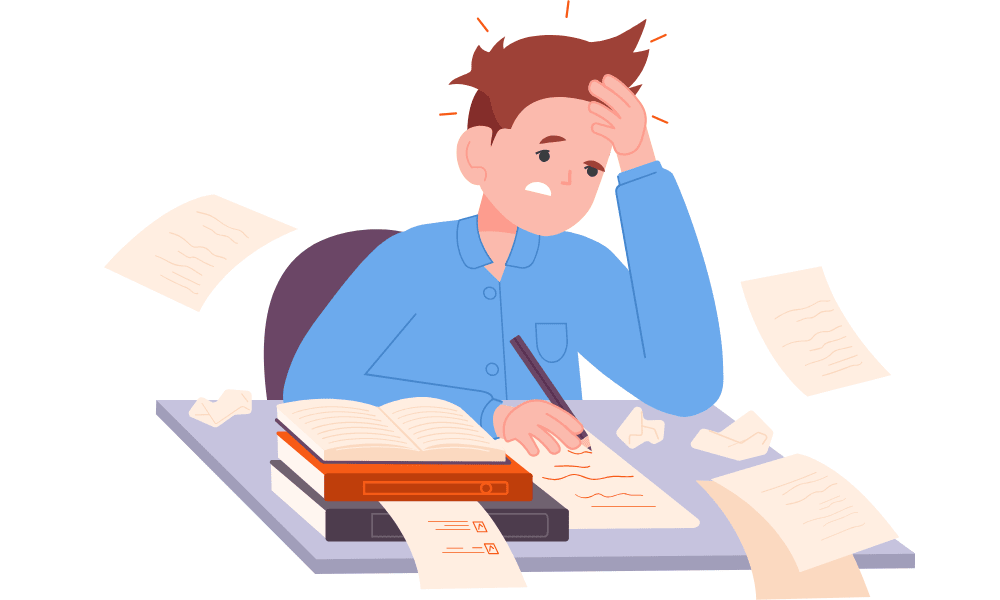- Improving concentration starts with creating a distraction-free physical and digital environment that signals to your brain it’s time to focus.
- Using specific time-management techniques, such as the Pomodoro method, can train your brain to work in focused, productive bursts.
- Mindful practices and physical activities directly strengthen your ability to stay present and maintain focus over time.
- The most effective strategies for concentration are built upon a foundation of proper sleep, nutrition, and hydration.
The Challenge of a Wandering Mind
The ability to concentrate is a valuable skill for students, professionals, and anyone who wants to learn more effectively. While some people seem to be naturally focused, the truth is that concentration is a muscle that can be strengthened with consistent practice.
This article provides research-backed strategies that you can start using today to improve your focus, work more efficiently, and achieve your goals.
The Core Principles of Focus
Improving concentration isn’t about willpower alone; it’s about setting up the right conditions for your brain to succeed.

1. Master Your Environment
Your physical surroundings have a profound effect on your ability to focus. A cluttered, noisy, or uncomfortable space makes it difficult for your mind to settle down.
- Eliminate Digital Distractions: The single most effective step you can take is to turn off notifications on your phone, tablet, and computer. Put your phone in another room or use website-blocking apps to keep you from getting sidetracked.
- Create a Dedicated Space: Designate one spot in your home or a library that is used only for focused work. This creates a mental cue that tells your brain it’s time to concentrate.
- Optimize Your Surroundings: Ensure you have good lighting to prevent eye strain and a comfortable chair for proper posture. A tidy desk also helps reduce mental clutter.
2. Practice Time-Management Techniques
You can train your focus by working in structured intervals. This prevents burnout and makes a large task feel more manageable.
- The Pomodoro Technique: Work in focused 25-minute intervals, separated by 5-minute breaks. After four cycles, take a longer break of 15-30 minutes. This method trains your brain to work in sprints and rewards it with regular rest.
- Batch Similar Tasks: Group similar activities together. For example, answer all of your emails at once, and then move on to writing. This reduces “switch-tasking,” which drains your mental energy.
3. Strengthen Your Mind and Body
Your physical and mental well-being are directly linked to your ability to concentrate.
- Mindful Meditation: Even a few minutes of daily meditation can improve your focus. Practice bringing your attention back to your breath whenever your mind wanders. This trains the same mental muscle you use for concentration.
- Get Regular Exercise: Physical activity increases blood flow to the brain, which improves cognitive function and attention. Even a short walk can clear your head and help you refocus.
- Stay Hydrated and Eat Well: Your brain needs fuel to function. Dehydration and poor nutrition can lead to brain fog and fatigue. Make sure you’re drinking enough water and eating meals with healthy fats, protein, and complex carbohydrates.
Final Thoughts
Improving your concentration is a skill that requires self-discipline—the commitment to making small, consistent choices that support your goals. It means choosing to put your phone away, even when you want to check it, and choosing to take a break when you feel tired. This discipline is the ultimate secret to productivity and academic success. By building these habits, you are not just getting more done; you are gaining control over your attention, a skill that will empower you for a lifetime of learning and achievement.
Frequently Asked Questions (FAQs)
Q: Do these strategies work for everyone? A: Yes. While some people may find certain strategies more effective than others, the core principles of a distraction-free environment and a healthy lifestyle are universally beneficial for improving concentration.
Q: Is it better to study with music or in silence? A: This varies from person to person. For many, instrumental music or ambient sounds can improve focus. However, music with lyrics can be a major distraction. It’s best to experiment to see what works for you.
Q: How long does it take to see results? A: You may notice a difference in your focus after just a few days of implementing these strategies. The real benefits, however, come with consistent practice over weeks and months.
Q: Can these techniques help with ADHD? A: Yes, many of these strategies are also used as part of a comprehensive plan for managing ADHD. The focus on structure, routine, and minimizing distractions can be particularly helpful.
